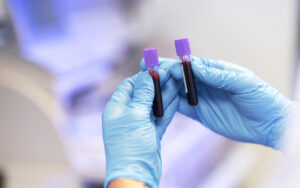Blood testing is a cornerstone of modern healthcare, providing critical insights into an individual’s health status. By analyzing a small sample of blood, medical professionals can detect diseases, monitor organ function, and assess overall well-being. This article delves into the importance of blood testing, its various types, and how it contributes to proactive health management.
Understanding Blood Testing
Blood testing involves the laboratory analysis of a blood sample to evaluate various physiological and biochemical states. These tests can detect abnormalities, diagnose conditions, and guide treatment plans. Regular blood testing is essential for early detection of potential health issues, allowing for timely intervention and improved outcomes.
Common Types of Blood Tests
- Complete Blood Count (CBC): This test measures the levels of different blood cells, including red blood cells, white blood cells, and platelets. It helps in diagnosing conditions like anemia, infections, and many other disorders.
- Blood Chemistry Tests: These assess various chemicals and enzymes in the blood, providing information about organ function. For example, liver function tests and kidney function tests fall under this category.
- Lipid Profile: This test measures cholesterol and triglyceride levels, aiding in the assessment of cardiovascular health and the risk of heart disease.
- Blood Glucose Test: Used to measure blood sugar levels, this test is crucial for diagnosing and managing diabetes.
- Hormone Tests: These evaluate hormone levels to assess endocrine function, aiding in the diagnosis of conditions like thyroid disorders.
The Importance of Regular Blood Testing
Regular blood testing plays a pivotal role in maintaining health and preventing disease. Here’s why it’s essential:
- Early Detection: Many diseases, such as diabetes and high cholesterol, may not present symptoms in their early stages. Blood tests can detect these conditions before they become severe.
- Monitoring Health Conditions: For individuals with chronic diseases, regular blood testing helps in monitoring the effectiveness of treatments and making necessary adjustments.
- Assessing Nutritional Status: Blood tests can reveal deficiencies in essential nutrients, guiding dietary adjustments and supplementation.
- Evaluating Organ Function: Tests can assess how well organs like the liver and kidneys are functioning, providing insights into potential issues.
Preparing for a Blood Test
To ensure accurate results, proper preparation for a blood test is crucial:
- Fasting: Some tests require fasting for 8-12 hours prior. Always follow your healthcare provider’s instructions regarding food and drink.
- Medication: Inform your doctor about any medications or supplements you’re taking, as they can influence test results.
- Hydration: Staying hydrated can make the blood draw easier and more comfortable.
Interpreting Blood Test Results
Understanding blood test bali results can be complex. It’s essential to discuss them with a healthcare professional who can interpret the numbers in the context of your overall health. They can explain what the results mean and recommend any necessary follow-up actions.
Conclusion
Blood testing is an invaluable tool in modern medicine, offering a window into the body’s inner workings. By facilitating early detection, guiding treatment plans, and monitoring health status, blood tests empower individuals and healthcare providers to make informed decisions. Regular blood testing is a proactive step toward maintaining optimal health and well-being.





